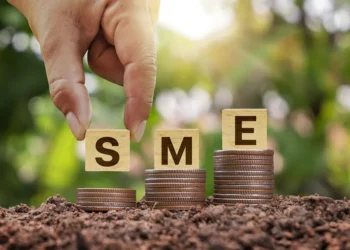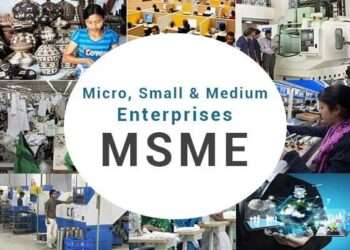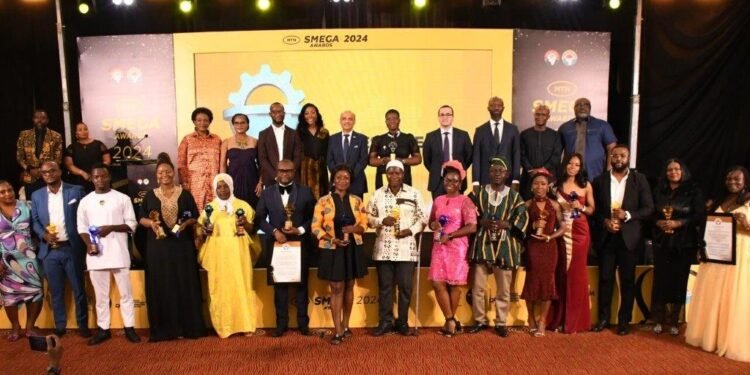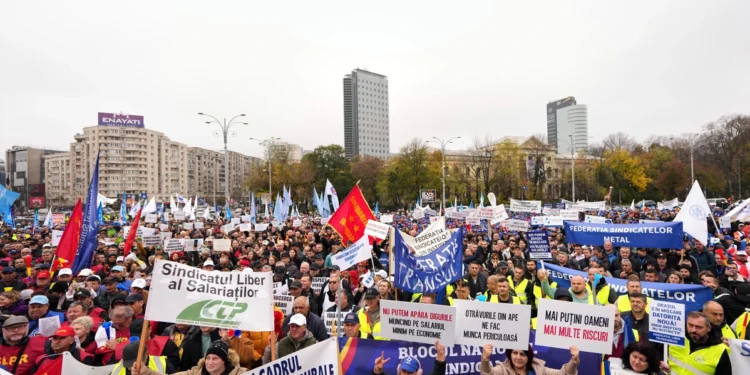The Ghana Revenue Authority (GRA) has rolled out two innovative policy initiatives — the Sustained Tax Education Programme and the Modified Taxation Scheme, aimed at raking in over two million new taxpayers in the first year of implementation.
The new programme, unveiled in Accra, is designed to strengthen voluntary compliance and simplify the tax payment process, especially within the informal sector. According to the Acting Commissioner-General of the GRA, Anthony Sarpong, the initiative forms part of broader efforts to enhance tax efficiency and promote a culture of compliance among individuals and businesses nationwide.
Mr. Sarpong noted that the GRA’s analysis shows massive untapped potential within the informal sector, which comprises millions of small businesses and self-employed individuals who are yet to be brought into the tax net.
“We have done some analysis and know that there is potential in the informal sector, such that if we’re able to get at least two million taxpayers every year, there will be more to be added to the tax net. This is a sector with about eight million businesses and individuals, so the first three years, which will be the first phase, will have about two million people on board.”
Anthony Sarpong
Sustained Education and Simplified Taxation
The Sustained Tax Education Programme seeks to build a nationwide culture of tax awareness and compliance. It will involve continuous engagement with citizens, public sensitisation campaigns, and strategic partnerships with community leaders and trade associations to demystify the tax system.
The Modified Taxation Scheme, on the other hand, is structured to simplify payment processes for small businesses and informal sector operators. This means less bureaucracy, more transparency, and improved accessibility through digital payment systems and community-level tax offices.
According to Mr. Sarpong, these reforms are expected to add more than GH¢10 billion annually to domestic tax revenue once fully operational. The GRA also plans to leverage technology to make compliance easier, using data analytics to track businesses and automate taxpayer registration.
“The simplified scheme will make it easier for taxpayers to understand their obligations and fulfill them without stress. The goal is to make taxation more inclusive and supportive of Ghana’s development agenda.”
Anthony Sarpong
Boosting the Tax-to-GDP Ratio
Ghana’s current tax-to-Gross Domestic Product (GDP) ratio remains below the Sub-Saharan African average, a situation that limits the government’s fiscal space for national development projects. The GRA believes that its new initiatives will significantly raise this ratio over the next three years by broadening the tax base and improving compliance.
By targeting over two million new taxpayers annually, the GRA hopes to reduce the country’s dependence on external borrowing and strengthen domestic revenue mobilisation to fund critical sectors such as health, education, and infrastructure.
Experts have long argued that Ghana’s informal economy, which accounts for nearly 70 percent of total employment, remains a goldmine for tax mobilisation if properly structured and incentivised. The Sustained Tax Education Programme directly addresses this gap, providing the knowledge and support small business owners need to voluntarily comply.
Government Pledges Support through Tax Reliefs
Speaking on behalf of the Minister for Finance, Deputy Minister Thomas Nyarko Ampem commended the GRA for its strategic initiative and hinted that the upcoming 2026 Budget, scheduled for presentation on Thursday, November 13, 2025, will include targeted tax reliefs for citizens.
He disclosed that the government is reviewing the Value Added Tax (VAT) system to make it more equitable and supportive of businesses.
“We are restructuring VAT to provide some relief to businesses while ensuring that revenue generation remains robust. The collaboration between the Ministry of Finance and the GRA is critical to achieving this balance.”
Thomas Nyarko Ampem
Mr. Ampem added that government’s fiscal policy will continue to focus on broadening the tax base rather than increasing tax rates, thereby ensuring that every citizen contributes a fair share to national development.
Presidential Endorsement and Call for Broader Coverage
Representing the President at the launch, Chief of Staff Julius Debrah lauded the GRA for introducing practical and innovative approaches to revenue mobilisation. He described the campaign’s theme — “Promoting Voluntary Compliance through Sustained Tax Education” — as a progressive step toward building a more responsible and participatory tax culture.
Mr. Debrah, however, urged the Authority to pay particular attention to night businesses, especially in light of the government’s 24-hour economy initiative. “As Ghana transitions into a 24-hour economy, businesses that operate at night must be captured within the tax net. The GRA should ensure that these enterprises are not overlooked,” he advised.
His comments underscore the need for the GRA to adapt its operations to emerging business trends while maintaining fairness and transparency in the tax system.
The launch of the Sustained Tax Education and Modified Taxation initiatives signals a new era for Ghana’s domestic revenue mobilisation efforts. With the potential to raise over GH¢10 billion annually, these reforms could significantly reduce the fiscal deficit, strengthen macroeconomic stability, and enhance public service delivery.
The GRA’s approach aligns with the government’s long-term vision of building a self-sustaining economy driven by effective resource mobilisation and prudent financial management. As more Ghanaians become tax-compliant, the nation stands to gain from increased investment in critical development projects, better infrastructure, and improved social welfare.
If successfully implemented, the GRA’s new initiatives will not only expand the tax net but also deepen public trust in the taxation system — a crucial foundation for Ghana’s economic transformation.
READ ALSO:Banks to Adjust Lending Rates Upward as GRR Edges Up for November 2025























